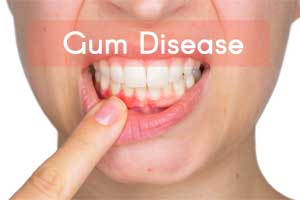- Home
- Editorial
- News
- Practice Guidelines
- Anesthesiology Guidelines
- Cancer Guidelines
- Cardiac Sciences Guidelines
- Critical Care Guidelines
- Dentistry Guidelines
- Dermatology Guidelines
- Diabetes and Endo Guidelines
- Diagnostics Guidelines
- ENT Guidelines
- Featured Practice Guidelines
- Gastroenterology Guidelines
- Geriatrics Guidelines
- Medicine Guidelines
- Nephrology Guidelines
- Neurosciences Guidelines
- Obs and Gynae Guidelines
- Ophthalmology Guidelines
- Orthopaedics Guidelines
- Paediatrics Guidelines
- Psychiatry Guidelines
- Pulmonology Guidelines
- Radiology Guidelines
- Surgery Guidelines
- Urology Guidelines
High blood pressure could be driver of heart attack and stroke in patients with periodontitis

High blood pressure could be the driver of heart attack and stroke in patients with periodontitis, finds a new study appearing in journal Cardiovascular Research. People with gum disease have a greater likelihood of high blood pressure or hypertension and therefore also linked to complications of high BP.
High blood pressure affects 30–45% of adults and is is the main preventable cause of cardiovascular disease. Periodontitis affects more than 50% of the world’s population and has been linked with an increased risk of heart attack and stroke.
Senior author Professor Francesco D'Aiuto of UCL Eastman Dental Institute, UK, said: “We observed a linear association – the more severe periodontitis is, the higher the probability of hypertension. The findings suggest that patients with gum disease should be informed of their risk and given advice on lifestyle changes to prevent high blood pressure such as exercise and a healthy diet.”
“Hypertension could be the driver of heart attack and stroke in patients with periodontitis,” said Professor D’Aiuto . “Previous research suggests a connection between periodontitis and hypertension and that dental treatment might improve blood pressure, but to date the findings are inconclusive.”
This study compiled the best available evidence to examine the odds of high blood pressure in patients with moderate and severe gum disease. A total of 81 studies from 26 countries were included in the meta-analysis.
Moderate-to-severe periodontitis was associated with a 22% raised risk for hypertension, while severe periodontitis was linked with 49% higher odds of hypertension. Lead author Dr Eva Munoz Aguilera of UCL Eastman Dental Institute said: “We observed a positive linear relationship, with the hazard of high blood pressure rising as gum disease became more severe.”
Average arterial blood pressure was higher in patients with periodontitis compared to those without. This amounted to 4.5 mmHg higher systolic and 2 mmHg higher diastolic blood pressures. “The differences are not negligible,” said Dr Munoz Aguilera. “An average of 5 mmHg blood pressure rise would be linked to a 25% increased risk of death from a heart attack or stroke.”
Just 5 out of 12 interventional studies included in the review showed a reduction in blood pressure following gum treatment. The changes occurred even in people with healthy blood pressure levels.
Professor D’Aiuto said: “There seems to be a continuum between oral health and blood pressure which exists in healthy and diseased states. The evidence suggesting periodontal therapy could reduce blood pressure remains inconclusive. In nearly all intervention studies, blood pressure was not the primary outcome. Randomised trials are needed to determine the impact of periodontal therapy on blood pressure.”
Regarding potential reasons for the connection between the conditions, gum disease and the associated oral bacteria lead to inflammation throughout the body, which affects blood vessel function. Common genetic susceptibility could also play a role, along with shared risk factors such as smoking and obesity.
Professor D’Aiuto said: “In many countries throughout the world, oral health is not checked regularly, and gum disease remains untreated for many years. The hypothesis is that this situation of oral and systemic inflammation and response to bacteria accumulates on top of existing risk factors.”
He noted that the study investigated gum disease as a potential risk factor for hypertension, but the reverse could also be true. “Further research is needed to examine whether patients with high blood pressure have a raised likelihood of gum disease. It seems prudent to provide oral health advice to those with hypertension,” he said.

Disclaimer: This site is primarily intended for healthcare professionals. Any content/information on this website does not replace the advice of medical and/or health professionals and should not be construed as medical/diagnostic advice/endorsement or prescription. Use of this site is subject to our terms of use, privacy policy, advertisement policy. © 2020 Minerva Medical Treatment Pvt Ltd